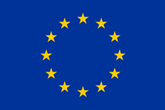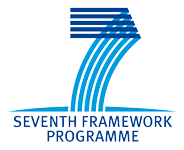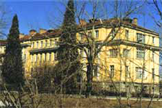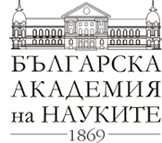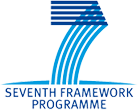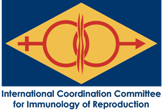ReProForce
FP7-REGPOT-2009-1
ReProForce logo
Slogun
REINFORCEMENT OF THE RESEARCH CAPACITY OF THE BULGARIAN INSTITUTE “BIOLOGY AND IMMUNOLOGY OF REPRODUCTION”
Events
- Jun 21, 2013
Information about the final meeting of ReProForce project participants /17-18 May 2013/
- May 10, 2013
Final meeting of ReProForce project
- Feb 28, 2013
Workshops of the ReProForce experts with business and scientific stakeholders in the IBIR-BAS
- Jan 30, 2013
Information for Open Doors Days in IBIR, BAS, November 29th – 30th 2012.
- Nov 14, 2012
Open Doors days – 2012
Seminar “Immunological problems in”human reproduction” Event under FP7 ReProForce project
Nov 18, 2011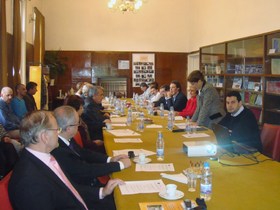
According to the program ReProForce Project sponsored by FP7 of the European Union, the Seminar “Immunological problems inhuman reproduction” was held on November 5th 2011 in the Institute of Biology and Immunology of Reproduction “Acad K.Bratanov”, Bulgarian Academy of Sciences (IBIR – BAS).
More than 30 scientists, PhD students and specialist working in the field of reproductive immunology participated at this seminar as well as members of the project team and our partners from European countries – prof Udo Markert (Department of Obstetrics, Fridrich Shiller University, Jena, Germany), prof. Nelson Fernandez (Department of Biological Sciences, Essex University, Colchester, UK)., prof. Hans Donat (Director of Private Ob/Gyn Hospital, Magdeburg, Germany), prof. Jurgen Kleinstein (University Clinic of Reproductive Medicine and Gynecological Endocrinology, Magdeburg, Germany).
The seminar was opened by the project coordinator associated-professor Margarita Mollova, PhD. M.Mollova welcome all participants and presented a short information about the role of the IBIR in foundation and development of the scientific field of reproductive immunology, for the aims, tasks and the significance of the ReProForce project for the incresing the level of the research done in IBIR. She underlined the fact that the results which will be presented at this seminar by the young scientists from IBIR are obtained using the equipment purchased with the finance of ReProForce project as well as during their visits in the partner’s laboratories.
The scientific program of the seminar was organized in two sessions at which 10 plenary lectures were presented discussing recent experimental and clinical data on current problems of reproductive immunology in humans. Some very interesting data on the possibilities to use a number of imaging techniques, the methods of proteomics and bioinformatics for mapping the molecules of tissue compatibility on the trophoblast cells as well as some novel data about the expression of microRNAs in trophoblast cells obtained by current informative methods. Basic studies on the expression of metalloproteinases in breast cancer were reported and the possibilities for the controlled inhibition with clearly defined clinical impact. New challenges in assisted reproductive techniques were discussed. Interesting reports were presented by young scientists from IBIR on the expression of HLA-G and PIBF by mesenchymal stem cells induced by reproductive steroid hormone progesterone and their immunomodulatory role and the immunoregulatory functions of decidual stromal cells during early pregnancy. With good perspective for both basic science and clinical practice were the reported data from pilot experiments concerning the establishment of a gene expression panel for human cumulus cells as a prognostic parameter for successful outcome of in vitro fertilization procedures. A special attention should be paid to the data about the clinical importance of testing the antiovarian antibodies in infertile patients and the significance of some growth factors and glycocorticoids on the steroid response of human granulosa cells in vitro.
The participants at the seminar were very active and discussed the new interesting experimental data presented on the immunological problems of human reproduction. During the time of the seminar discussions were carried out with the project partners concerning the possibilities to produce a new project and to apply for further financing from the European Commission. It was pointed out that there would be difficulties to apply with a research project on concrete topic of reproductive immunology and/or stem cells in reproductive system. However, it would be more reasonable to apply with a project on exchange of PhD students. It was decided that members of the project team will search for some more information concerning the alternative for application for projects and distribute this information among members of the team and project partners as well.
Персонализирано търсенеМрежата
